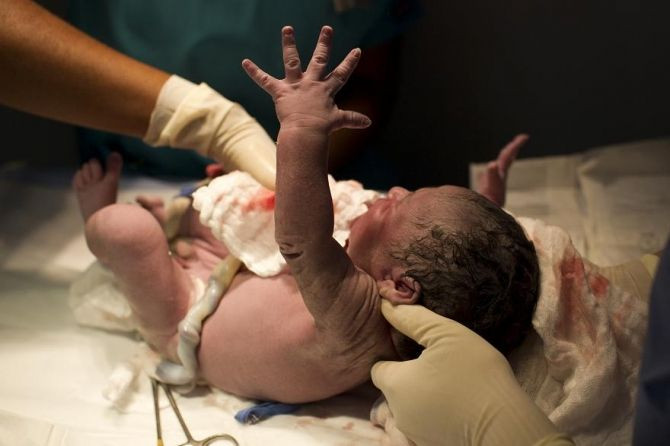DNA Test Can Detect Genetic Defects of Babies in Two Days

A new genetic test could determine if a baby has any genetic defects baby in just two days.
Researchers say that the total time of the test, from taking blood samples to returning the test results to the physician, would take only 50 hours (time taken to ship the genetic analysis from research center to the hospital not accounted) with the new approach called STAT-Seq.
The new approach could help physicians attending babies in the neonatal intensive care units (NICU) to make quick decisions about how to go about treating a baby who has been diagnosed with a genetic disease.
Currently, whole genome analysis may be used to pinpoint the cause of disease, but this method is time-consuming and expensive.
"Up to one third of babies admitted to a NICU in the U.S. have genetic diseases. By obtaining an interpreted genome in about two days, physicians can make practical use of diagnostic results to tailor treatments to individual infants and children," said Stephen Kingsmore, Director of the Center for Pediatric Genomic Medicine at Children's Mercy Hospitals.
The STAT-Seq uses software that translates the symptoms entered by the physician into a set of possible diseases. The method uses Illumina's HiSeq 2500 system that sequences the infant's whole genome in about 25 hours. In the present study, the researchers analyzed the genome of five children and found the likely gene that was responsible for the disease in four of them, reports Nature.
In many genetic diseases, early intervention can save lives. "A lot of people are going to realize from this that the future is now," said Richard Gibbs, director of the human genome sequencing center at Baylor College of Medicine in Houston, Texas, reports Nature.
"By shortening the time-to-diagnosis, we may markedly reduce the number of other tests performed and reduce delays to a diagnosis. Reaching an accurate diagnosis quickly can help to shorten hospitalization and reduce costs and stress for families," said Kingsmore.
Kingsmore estimated that the cost of genetic sequencing per baby would be about $13,500, as reported by Nature.
The study is published in Science Translational Medicine.



























